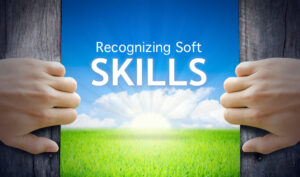
Self-Awareness: The Leadership Game-Changer
Understandably, most leaders spend their time focusing on strategy, problem-solving, process, performance, and others. These are all critical to success, but what if the biggest

Understandably, most leaders spend their time focusing on strategy, problem-solving, process, performance, and others. These are all critical to success, but what if the biggest

Yes, workplace soft skills still matter. In fact, amid our ever-changing “new normal,” the intangible qualities that focus on behavior, personal traits and cognitive capabilities

WorkTrends has been focusing on diversity and inclusion not as buzzwords, but as actions. Meghan invited Elena Joy Thurston to the podcast to share her
There is something powerful about someone who knows who they are and what they are all about. It’s even more attractive when you can genuinely

Are you ready for the next step in your career? It may be time to take a step back and look more closely at what you can offer

Everyone wants a fulfilling job. But how do we find it, and why should employers support us? Let’s talk about it at #TChat Events